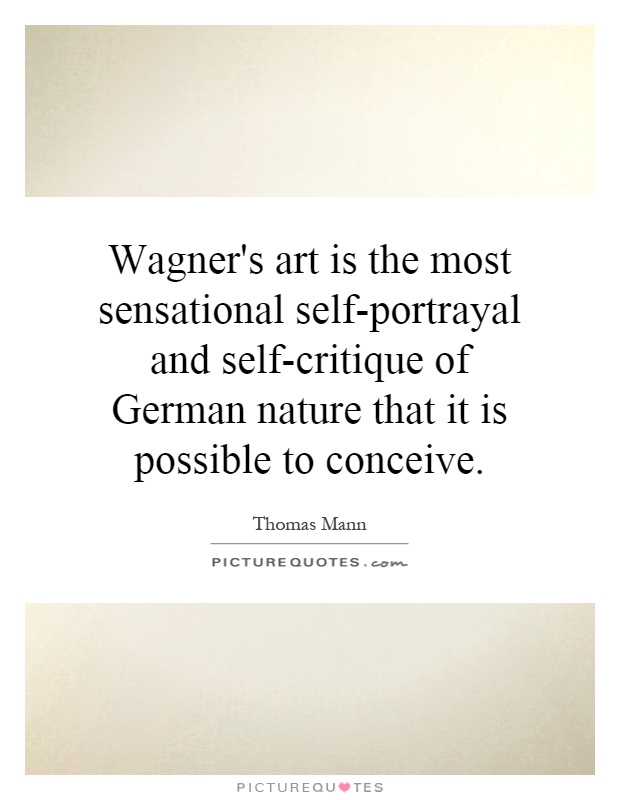Wagner's art is the most sensational self-portrayal and self-critique of German nature that it is possible to conceive

Wagner's art is the most sensational self-portrayal and self-critique of German nature that it is possible to conceive
Thomas Mann, the renowned German novelist and essayist, was deeply influenced by the works of Richard Wagner, the famous composer and conductor. Mann's admiration for Wagner's artistry is evident in his writings, where he often explores the themes of self-portrayal and self-critique in relation to German nature.Mann believed that Wagner's art was the most sensational self-portrayal and self-critique of German nature that could be conceived. Wagner's operas, with their grandiose themes and complex characters, reflected the tumultuous history and cultural identity of Germany. Mann saw in Wagner's works a reflection of the German psyche, with all its contradictions and complexities.
One of the key aspects of Wagner's art that fascinated Mann was the way in which Wagner portrayed the German spirit. Wagner's operas, with their emphasis on heroism, destiny, and redemption, captured the essence of the German soul. Mann saw in Wagner's characters a reflection of the German people, with their longing for greatness and their struggle with their own dark impulses.
Mann also admired Wagner's ability to critique German nature through his art. Wagner's operas often explored themes of power, corruption, and moral decay, shining a light on the darker aspects of German society. Mann saw in Wagner's critiques a call for self-reflection and self-improvement, urging the German people to confront their own flaws and strive for a better future.












 Friendship Quotes
Friendship Quotes Love Quotes
Love Quotes Life Quotes
Life Quotes Funny Quotes
Funny Quotes Motivational Quotes
Motivational Quotes Inspirational Quotes
Inspirational Quotes